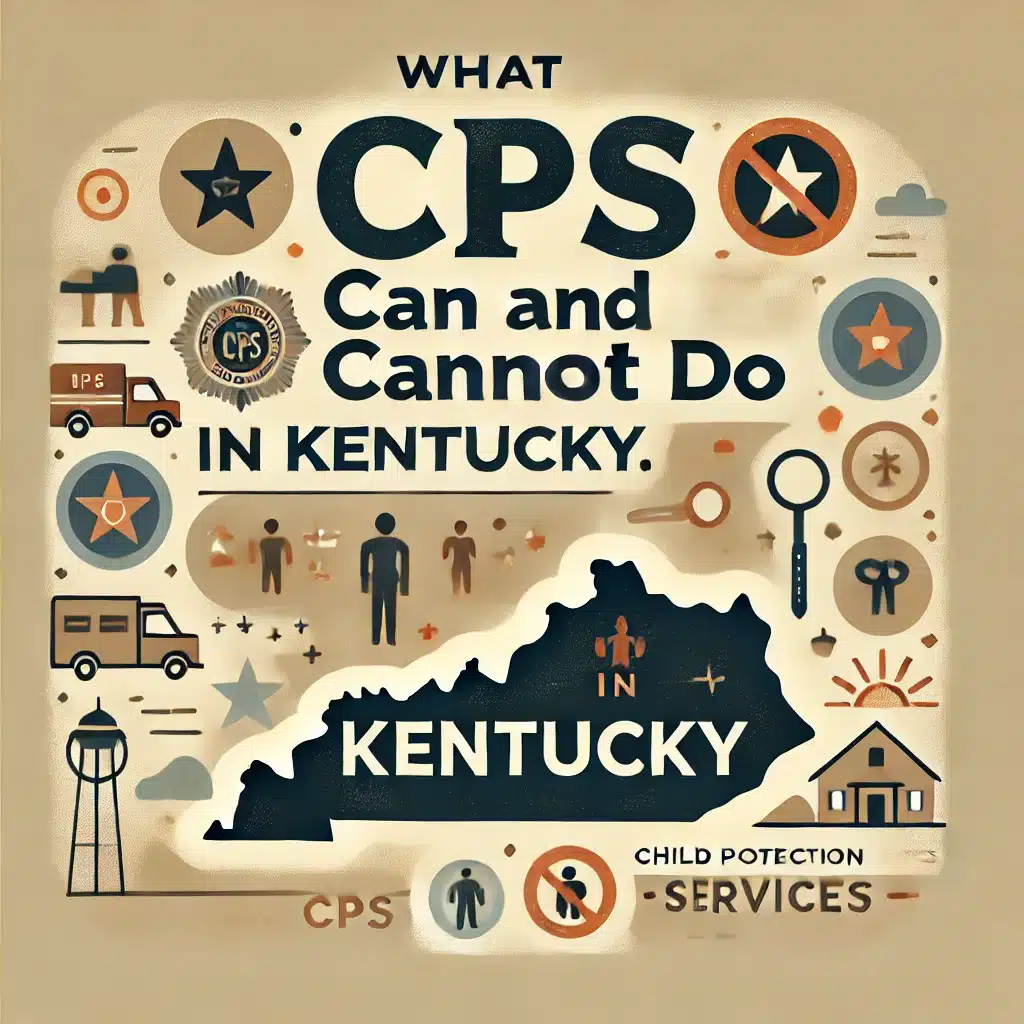Child Protective Services (CPS) plays a critical role in ensuring the safety and well-being of children. However, many people are unsure about what CPS can and cannot do, especially in Kentucky. This article aims to clear up some of the confusion by outlining CPS’s powers and limitations, as well as what parents can expect during an investigation.
Key Takeaways
- CPS can conduct home visits and interview children without needing parental consent.
- CPS cannot enter your home without permission or a court order.
- Parents have the right to legal representation and must be informed of the allegations against them.
- It’s essential to document all interactions with CPS and seek legal advice immediately if contacted.
- There are specific steps to file a complaint against CPS if you believe your rights have been violated.
Understanding the Role of CPS in Kentucky
Child Protective Services (CPS) in Kentucky plays a crucial role in ensuring the safety and well-being of children. Their main job is to look into reports of child abuse, neglect, or dependency and take action if needed. They work under a set of laws and rules to make sure they do their job right and fairly.
What CPS Can Legally Do in Kentucky
Conduct Home Visits
Child Protective Services (CPS) can conduct home visits to check on the well-being of children. These visits are usually scheduled, but in some cases, they can be unannounced. The goal is to ensure the child’s safety and to investigate any reports of abuse or neglect.
Interview Children Without Parental Consent
CPS has the authority to interview children without needing parental consent. This is done to get an honest account from the child about their living conditions and any potential issues. The interviews can take place at school, home, or another safe location.
Request Medical Records
CPS can request medical records to better understand the child’s health and any medical issues that may be present. These records help CPS make informed decisions about the child’s care and safety.
If CPS contacts you, it’s important to know your rights and understand what they can and cannot do. This knowledge can help you navigate the process more effectively.
What CPS Cannot Legally Do in Kentucky
Enter Your Home Without Permission
CPS can visit your home without prior notice, but they cannot enter without your permission. They need a court order or must believe your child is in imminent danger to legally enter your home.
Force Drug Tests Without Consent
CPS cannot make you take a drug test without your consent. They must have a court order to require you to take a drug test.
Remove Children Without Court Orders
CPS cannot remove your children from your home without a court order. They need legal authorization to take such action unless there is an immediate threat to your child’s safety.
It’s important to know your rights when dealing with CPS. Understanding what they can and cannot do helps you protect your family.
Rights of Parents During CPS Investigations
During a CPS investigation, it’s crucial for parents to understand their rights. Knowing your rights can help you navigate the process more confidently and protect your family’s interests.
Right to Legal Representation
Parents have the right to seek legal representation during a CPS investigation. Having a lawyer can help you understand the legal aspects of the investigation and ensure that your rights are protected.
Right to Be Informed of Allegations
You have the right to be informed of all allegations made against you. This means that CPS must tell you what the accusations are so you can respond appropriately.
Right to Refuse Entry Without a Warrant
Parents can refuse entry to their home if CPS does not have a warrant. While CPS can still talk to your child without your knowledge, they cannot force their way into your home without legal permission.
It’s important to stay calm and collected during any interaction with CPS. Knowing your rights can make the process less stressful and more manageable.
Steps to Take if CPS Contacts You
If Child Protective Services (CPS) contacts you, it’s crucial to know how to handle the situation. Here are some steps to guide you through the process.
Document All Interactions
Keep a detailed record of every interaction you have with CPS. Write down the names of the caseworkers, the dates and times of visits, and the topics discussed. This information can be vital if you need to refer back to it later.
Seek Legal Advice Immediately
Contact a lawyer as soon as possible. A legal professional can help you understand your rights and provide guidance on how to proceed. Don’t wait until the situation escalates; early legal advice can make a significant difference.
Understand Your Rights and Obligations
Familiarize yourself with your rights and obligations during a CPS investigation. Knowing what CPS can and cannot do will help you navigate the process more effectively. For example, you have the right to refuse entry to your home without a warrant.
Staying calm and cooperative can make a big difference when dealing with CPS. It’s important to remain composed and polite during all interactions.
By following these steps, you can better manage the situation and protect your family’s interests.
How to File a Complaint Against CPS in Kentucky
Filing a complaint against Child Protective Services (CPS) in Kentucky can be a structured process. Understanding the steps involved can help you navigate this challenging situation more effectively.
Resources for Families Involved with CPS
Navigating a CPS case can be overwhelming, but there are many resources available to help families through this challenging time. Getting good, personalized legal advice can make all the difference when you’re dealing with a stressful CPS case. Whether they walk you through the process step-by-step or just clarify a few things you’re concerned about, a lawyer can be an invaluable asset.
Conclusion
Understanding what Child Protective Services (CPS) can and cannot do is crucial for every parent. It helps you know your rights and how to protect your family during an investigation. While CPS has the authority to take certain actions to ensure a child’s safety, there are clear limits to their power. By being informed, you can better navigate any interactions with CPS and advocate for your family’s well-being. Remember, knowledge is your best defense.
Frequently Asked Questions
Why did CPS decide to investigate me?
CPS may investigate if they receive a report suggesting that a child might be in danger or not being properly cared for. This is to ensure the child’s safety and well-being.
Can CPS interview my child without my permission?
Yes, CPS can talk to your child without your consent. They do this to get an honest account from the child without any outside influence.
Can CPS enter my home without my permission?
No, CPS cannot enter your home without your permission unless they have a court order or believe that your child is in immediate danger.
Do I have the right to know the allegations against me?
Yes, you have the right to be informed about the allegations. CPS must tell you what they are investigating and why.
Can CPS take my child away without a court order?
No, CPS cannot remove your child from your home without a court order unless they believe the child is in immediate danger.
What should I do if CPS contacts me?
If CPS contacts you, it’s important to document all interactions, seek legal advice right away, and understand your rights and responsibilities.




